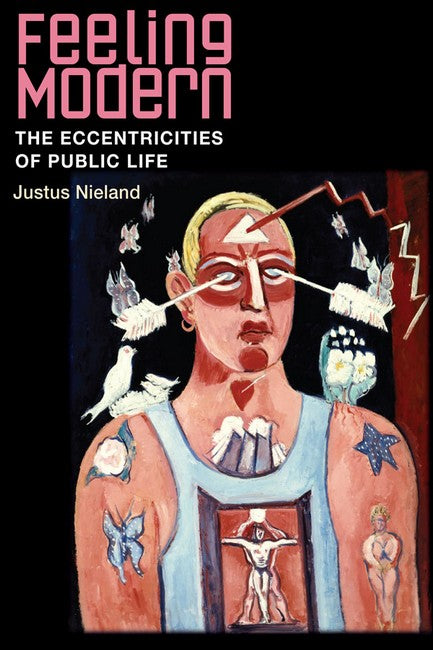This rigorous and original study combines theories of the public sphere, cinema, and visual culture with a growing body of critical work on affect. While modernist feeling is often described either as a reservoir of romantic inwardness or as an inhuman hostility to sentiment, Justus Nieland challenges these notions by approaching emotion through a poetics of modernist publicity. He argues that modernists championed feelings as primarily public products of modernity rather than as the private property of the self. Nieland's fresh account of the moderns' revolutionary designs on feeling also offers a new understanding of modernist publicness that includes self-presentation in popular theatrical spaces and public feelings enabled by performance, film, and other public amusements. Positing Charlie Chaplin as the embodiment of the modern ''eccentric,'' Nieland explores the wildness of feeling in the work of many other key modernists, including Wyndham Lewis, Sergei Eisenstein, Marsden Hartley, E. E. Cummings, Joseph Cornell, Nathanael West, and Djuna Barnes. Ranging widely across modernist literature, avant-garde film, popular performance, and the visual arts of the modernist period, this study demonstrates that eccentric feeling is the emotional climate of modern alienation. Nieland finds, at the eccentric heart of modernism, a critique of the role of emotional propriety in collective life and an ethos of public comportment. Feeling Modern recovers the affective and poetic dimensions of public life that make it ever worth living.''A rethinking of what constitutes modernist feeling. . . . Recommended.''--Choice Feeling Modern is handsomely written, and Nieland betrays a more fine-grained sensibility than many of his professional peers.--Modernism/Modernity''A real breakthrough. Exciting new answers to foundational unresolved questions make Feeling Modern a watershed in modernist studies. The field will enthusiastically welcome this book for its inspired revisionism, its deft combination of high-level theory and engaging local readings, and for bringing us finally to the eccentric heart of modernist culture.''--Jesse Matz, author of Literary Impressionism and Modernist Aesthetics ''In Feeling Modern, Justus Nieland demonstrates the capacities of modernist writers to evoke states of sympathetic, trans-individual experience and, through the intricacies of fictional and cinematic texts, to communicate them to audiences and reading publics. He reveals modernism's productive and not merely defensive relation to popular culture, even to the most 'vulgar' and sensational cultural domains such as vaudeville and circus, and he is able to assess judiciously the psychological struggles this encounter may have entailed for particular authors. This is a fresh, original, and exciting addition to the scholarship in new modernist studies.''--Tyrus Miller, University of California at Santa Cruz

